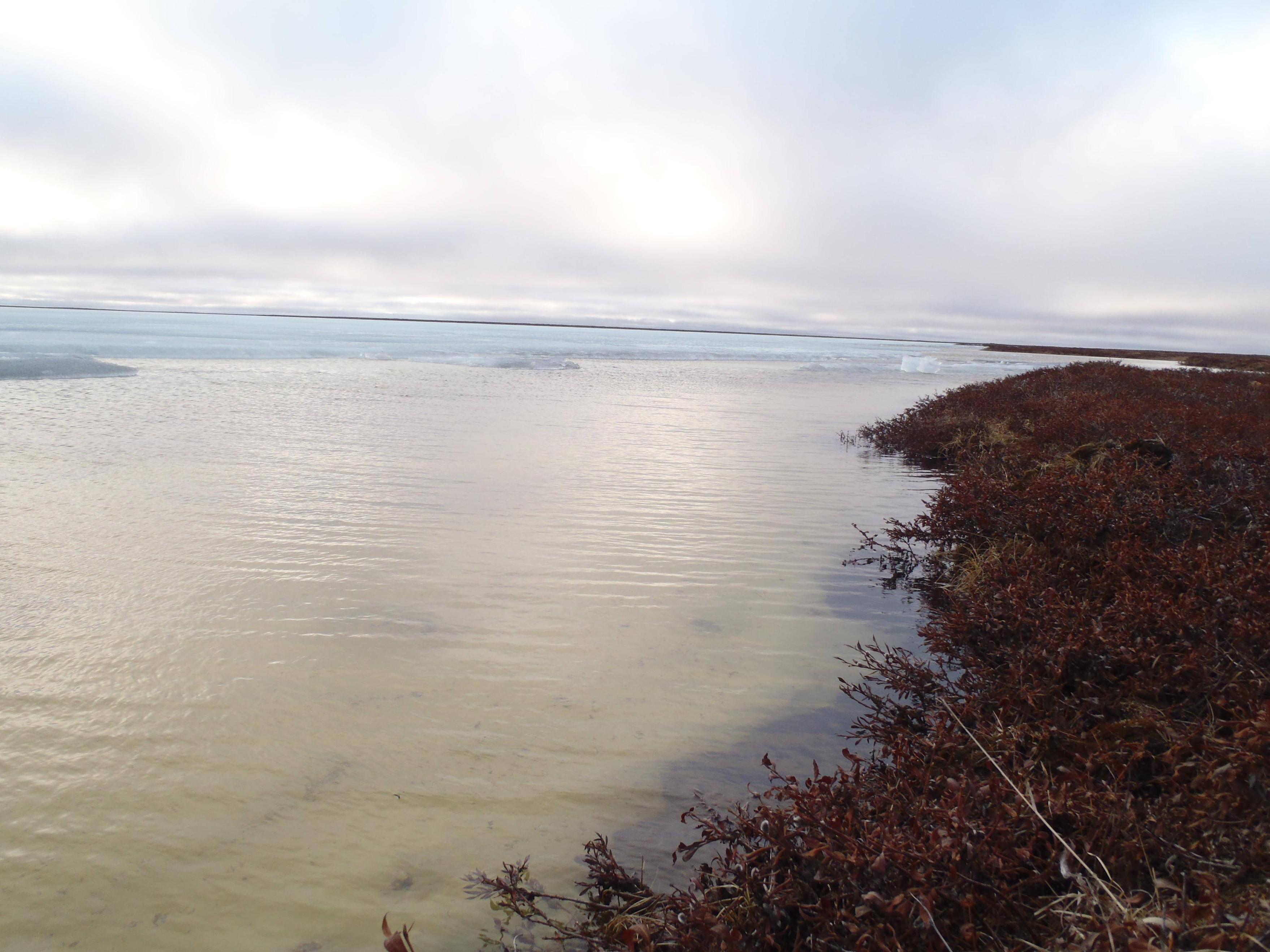I am interpreting your question as referring to rivers with flowing water freezing as as opposed to glaciers, which are already frozen.
Under current climatic conditions, small rivers can freeze throughout: from bank to bank, surface to river bed. I'm avoiding using the word solid as some people use that word when a river's surface has frozen from bank to bank.
Large rivers do not freeze "through out" because,
Water, ice, and snow are good insulators and poor conductors of heat.
The portions of a lake or river that are exposed to the cold winter
air will freeze into ice and this ice insulates the water below from
further rapid freezing. Also contributing to the prevention of bodies
of water freezing solid is an interesting characteristic of water.
Like most other forms of matter, water become denser as it cools, but
beginning at about 39°F (4°C) something odd happens - water begins to
lose density as it gets colder, becoming least dense when it freezes
into ice. This is why ice floats. As water becomes colder it rises to
the top, eventually freezing to the layers of ice that are already
there. Insulation of the water beneath is increased as the ice
thickens so cooling of the water beneath slows.
From The Great Land of Alaska: Why don't lakes and rivers freeze solid?
Also, while water is flowing its potential energy is constantly being converted to heat energy that resists freezing on the molecular level and subsequent crystallization.
For flowing water to freeze, the temperature would have to be exceptionally cold.
